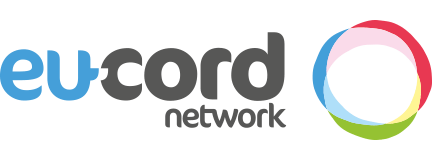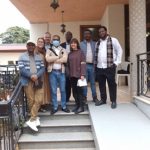At the spring General Assembly, the See You Foundation led members in a thought-provoking conversation on the necessary steps to foster inclusive workplaces and projects. Let’s delve into the key takeaways.
The discussion began with a resounding affirmation that everyone is inherently valuable regardless of their abilities. Rooted in deeply held Christian values, the participants emphasised the need to include the most vulnerable groups. They stressed that a vision for change is imperative, as people with disabilities can go unnoticed and unheard. Our collective responsibility is to ensure they are seen and their voices are heard.
Recognising that achieving inclusion is a journey, the participants advocated embracing even the smallest positive changes. Pragmatism played a crucial role, acknowledging that any progress is better than no progress. The question then arose: how can we take these small steps towards greater inclusivity?
The need for minimum standards in disability inclusion became a focal point of the discussion.
Establishing clear guidelines and expectations ensures that efforts towards inclusion are not arbitrary but backed by concrete frameworks. This would require organisations to develop disability-inclusive policies and human resources practices beyond superficial gestures.
Religion and faith-based approaches were also considered. While they can be powerful drivers of inclusion, the conversation acknowledged that they may inadvertently perpetuate stigma. Thus, it is imperative to uphold our Christian values by embracing inclusive practices, ensuring that no one is left behind.
CEOs identified several steps in advancing disability inclusion in their organisation:
- To use EU-CORD as a learning space, fostering peer reviews and sharing policies and best practices.
- To ensure that disability is not an isolated concern but rather intersects with other challenges, such as climate change. By breaking down silos, organisations can integrate disability inclusion into their overall strategies, contributing to a more holistic and sustainable approach.
- The need to move beyond mere passivity and become more proactive in driving change. Instead of simply reacting to existing barriers, CEOs recognised that they needed to take the initiative in dismantling them and creating a more inclusive environment.
- Focusing on making incremental improvements, even in the short term, is essential.
The conversation concluded by underscoring the significance of partnerships and collaboration. See You plays a vital role in mapping ongoing initiatives, conducting peer reviews, and sharing expertise. EU-CORD members were encouraged to draw on this resource.
In conclusion, the discussion on disability inclusion sparked thoughtful insights and a call for action. We can take small but meaningful steps towards creating a more inclusive society by embracing a vision for change, breaking down silos, and proactively addressing barriers.
It is a journey that requires the collective efforts of all organisations, not just specific ones.





